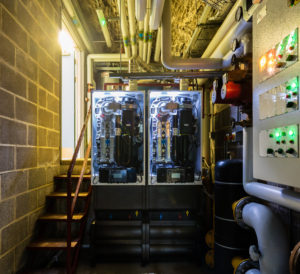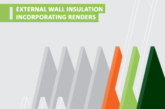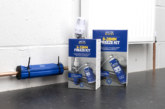
The drive for cleaner air has brought new focus on NOx emissions. With mandatory requirements coming into force in 2018 for space heating, James Porter, Sales Director at Remeha, looks at the implications for estates managers.
Most public sector estates managers would agree that tightening legislation and shrinking budgets have encouraged improved energy efficiency in our buildings in recent years. Now, as attention centres on indoor and outdoor air quality, there is a new challenge ahead: minimising the group of polluting gases known as nitrogen oxides, or NOx.
It is 60 years since the Clean Air Act was first introduced in response to London’s Great Smog of 1952. Today, there is renewed concern over air pollution and its harmful effects, with most UK cities and towns currently exceeding both World Health Organisation guidelines and European legal limits. The Department for Environment, Food and Rural Affairs (Defra) claims that pollution from NOx causes the premature deaths of 23,500 UK citizens each year.
Vehicle exhausts are a major contributor to outdoor pollution. But buildings — and their heating systems — also typically emit NOx, contributing to 18% of the UK’s total greenhouse gas emissions according to the Committee for Climate Change.
Engineering for low emissions
To address this, the European Union is cracking down on NOx emissions from space heating in both new-build and refurbishment projects. From September 2018, the Ecodesign of Energy-related Products Directive will introduce mandatory NOx requirements for all space heaters up to and including 400 kW.
Maximum NOx emissions of 56 mg/kWh will apply for gas and liquefied petroleum gas (LPG) boilers, with a maximum of 120 mg/kWh for oil-fired boilers. This follows on from the tighter energy efficiency standards enforced in September 2015. The aim is to ensure that only energy-efficient, low NOx heating products are manufactured, specified and installed in the UK and across the EU.
Public support cleaner air
Imposing maximum NOx levels can only be a good thing, with cleaner air benefitting the planet, our health and our public services, reducing demand on the health sector. And there’s strong public support for action. A YouGov survey of more than 800 people showed that 76% want to bring their cities in line with European limits on air pollution — despite the UK’s imminent exit from the EU.
Condensing solution
What, then, does this mean for estates managers? Will the new low NOx legislation be another hurdle in the procurement process — more hassle and more expense for straitened budgets?
Not necessarily. For an affordable, practical solution to high efficiency, low NOx heating, we need look no further than the humble condensing boiler. This might be familiar technology but it is increasingly sophisticated, designed and engineered to meet ultra-low NOx criteria and near maximum efficiency — around 98% gross. As a result, condensing boilers like the Remeha range are not only fully compliant with all current British and EU efficiency and NOx regulations, but future-proof to ErP 2018 NOx legislation.
Specification criteria
It is not a new concept for the heating industry, where the low NOx properties of condensing boilers are often a contributing factor in their specification. Take the St Mungo’s Pound Lane Centre in London, which houses the St Mungo’s hostel for the homeless and Brent Council’s adult education services. When specifying the replacement heating equipment, NOx was a key consideration for consultants Peter Pank Partnership to ensure compliance with the Clean Air Act. Indeed, it was one of the reasons for specifying low NOx Remeha Quinta Pro condensing boilers on a bespoke designed rig system.
Then there’s the sustainability assessment scheme BREEAM. First  introduced in 1990, BREEAM rates the environmental impact of a building across a number of criteria, from energy to ecology. The points contribute to an overall rating from ‘pass’ to ‘outstanding’.
introduced in 1990, BREEAM rates the environmental impact of a building across a number of criteria, from energy to ecology. The points contribute to an overall rating from ‘pass’ to ‘outstanding’.
Three credits are available for space heating that achieves NOx emissions equal to or below 40 mg/kW. With some condensing boilers offering ultra-low NOx at around or below 35 mg/kW, they easily qualify for the full credits. And the financial kudos of BREEAM should not be underestimated — with occupants increasingly choosing properties with higher ratings for their environmental benefits or to promote their green credentials.
The innovative and sustainable business centre One Trinity Green, in South Shields, is one such example. South Tyneside Council was keen to provide low NOx heating for a low environmental impact. M&E Consultant Jayne Bainbridge of RPS Group specified Remeha Quinta Pro condensing boilers “due to their low NOx emissions which ensured that we achieved maximum points for the Pol 2 credit in BREEAM. The low carbon emissions and high energy efficiency of the boilers assisted in the Part L compliance and the high EPC rating achieved by the building.”
Health benefits
The growing link between sustainable buildings and occupant wellbeing and productivity only underlines the importance of reducing NOx emissions wherever possible. According to a new US study by the Harvard School of Public Health and the State University of New York (SUNY) Upstate Medical University, people in ‘green’ certified buildings experience improved health, higher cognitive ability and better sleep quality.
If, as the World Green Building Council states, people account for 90% of a building’s costs, surely low NOx heating is a simple step for improved health, wellbeing and productivity.
Win-win solution
How, then to ensure low NOx heating? The first goal should be to plan for only high-efficiency, low NOx heating products on new and existing systems. Next, in the high proportion of buildings that still rely on commercial boiler plant, consider upgrading any old boilers with high-efficiency, low NOx condensing boilers. However well maintained, older boilers will fail to achieve the low emissions required to contribute to improved air quality. Finally, keep the NOx low with a well-sized, well-designed and well-controlled heating system.
The drive for cleaner air is gathering momentum. In condensing technology we already have a simple, cost-effective solution to low NOx heating. Easy to install, with minimum disruption leading to transformative, cleaner operation, condensing boilers are also a proven quick win to carbon and energy savings. Given the combined economic, environmental and health benefits that such types of heating systems can bring, why wait until 2018 to act?








